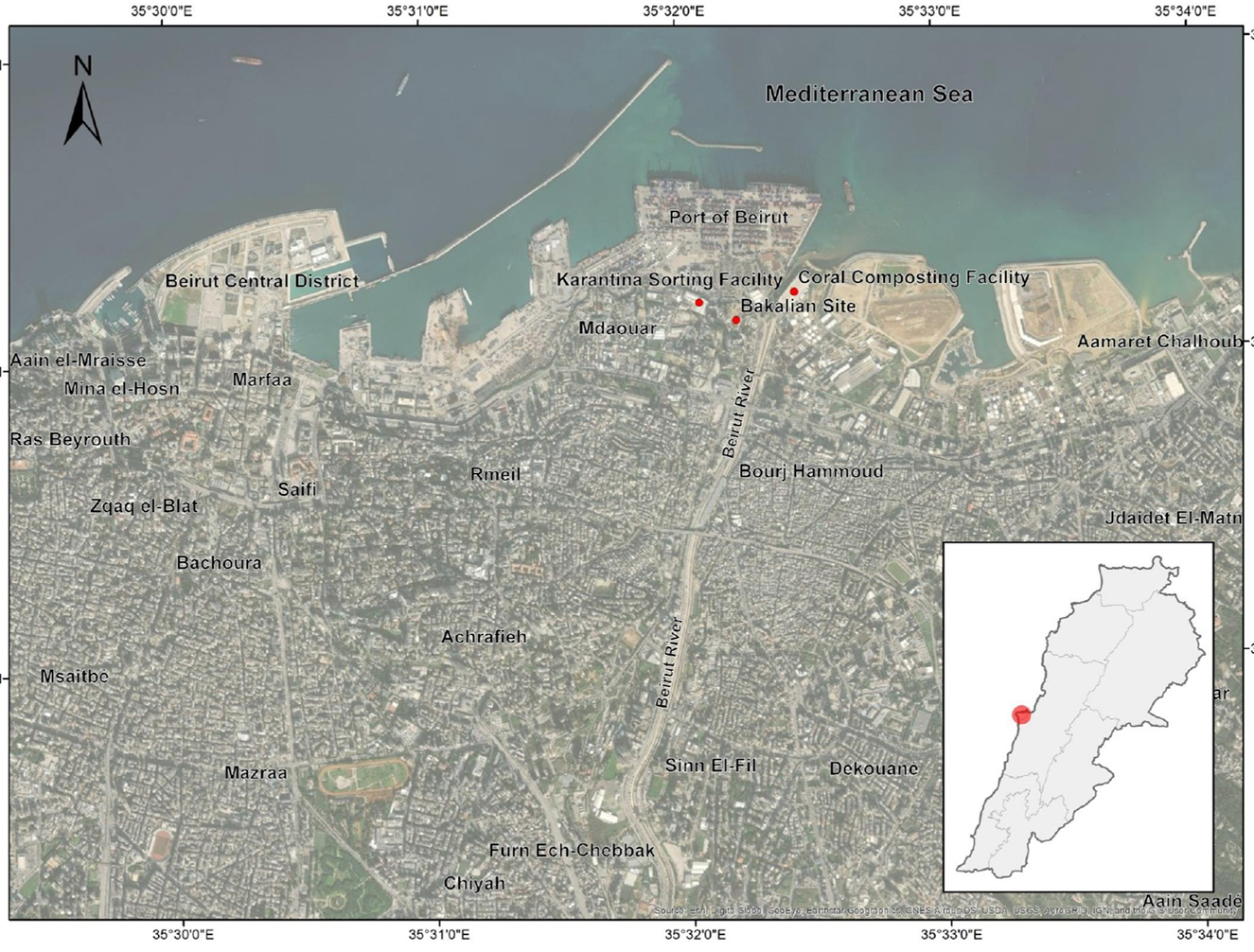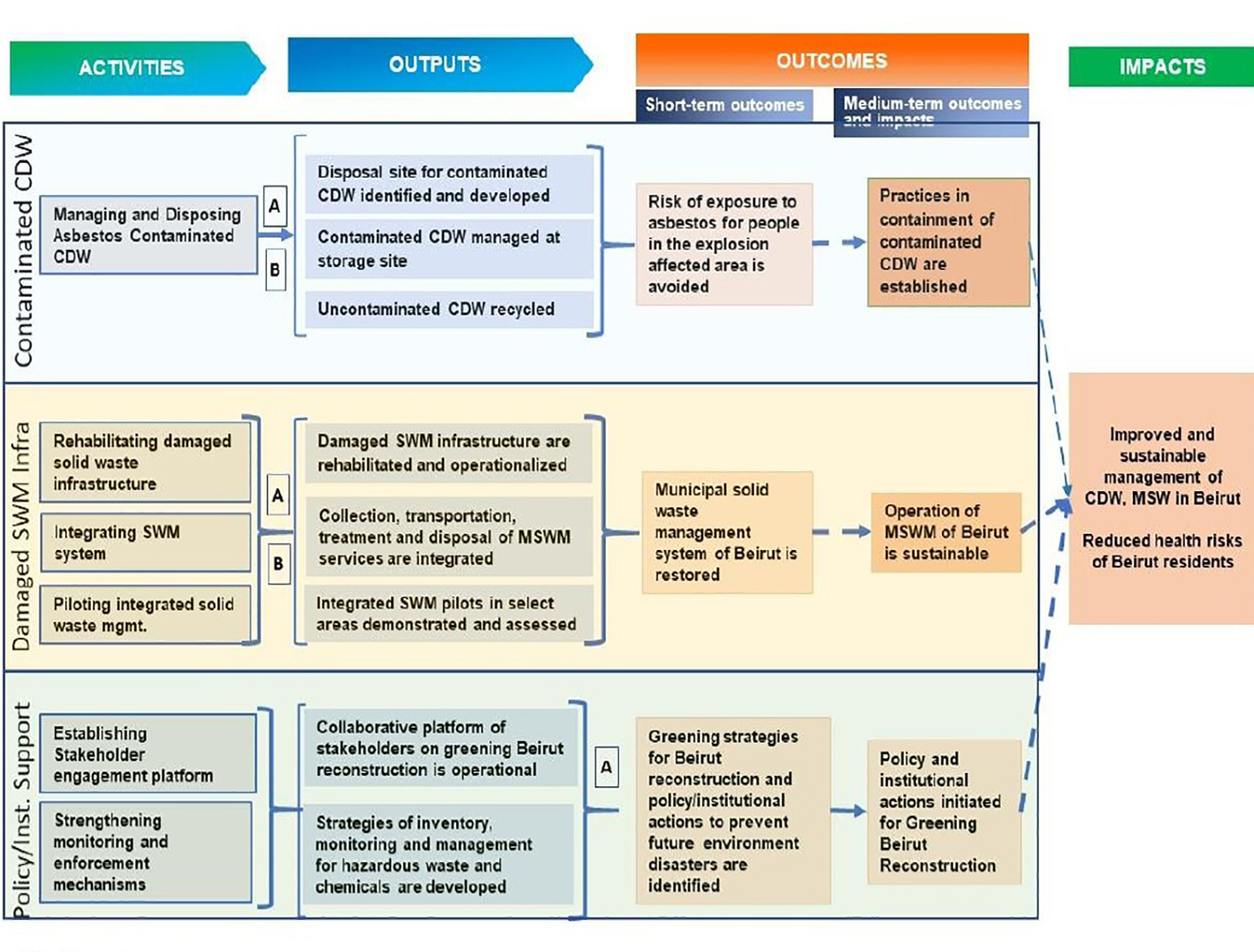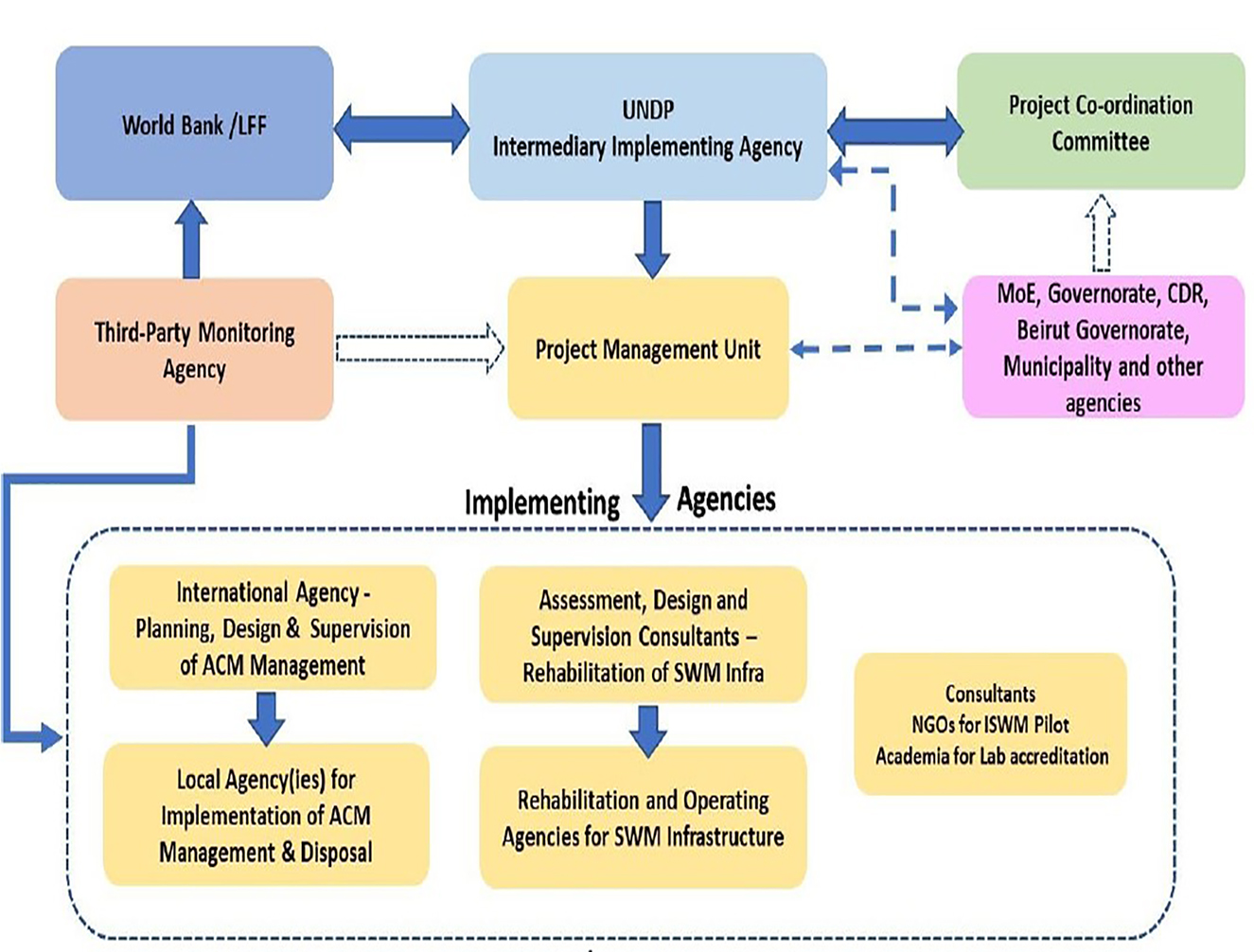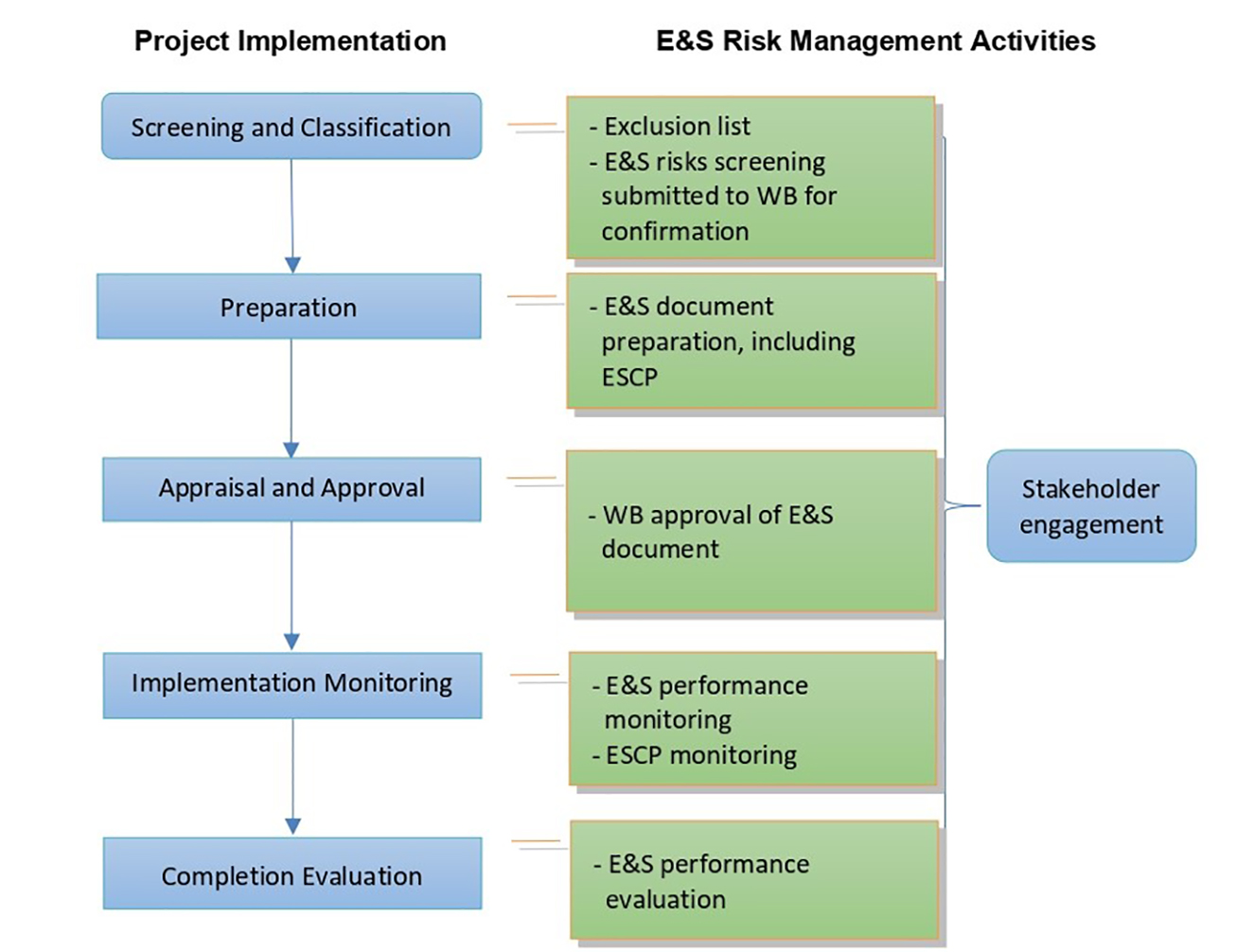
Close

Approach Words: Environment Preservation, Participatory Approach, Urban Resilience
Public Policy Instruments: Communicative, Organization, Physical Intervention, Planning
The Beirut Critical Environment Recovery, Restoration, and Waste Management Program by the United Nations Development Programme (UNDP) is a mitigation plan for the environmental and health impacts of the 2020 Beirut Port explosion on nearby population1. Specifically, the project acts as both a short- and long-term environmental recovery effort. In the immediate-term, it aims to reduce risks of a solid waste crisis and other environmental impacts from the blast2. Over the longer term, it plans comprehensive environmental restoration of Beirut City. Additionally, the new cooperation model between stakeholders involved in this project seeks to strengthen the foundations for broader environmental governance in Lebanon3.

Title: Location of defined project components.
Source: Click Here

Title: Project activities, outputs and outcomes scheme.
Source: Click Here

Title: Project implementation structure.
Source: Click Here

Title: Environmental and Social (E&S) management procedure.
Source: Click Here
To meet the project objective, a strategic plan was proposed that includes three components as follows:
Component 1: Rehabilitation of damaged solid waste management infrastructure and effective management and containment of asbestos-contaminated debris resulting from the Port of Beirut explosion. It has the following sub-components: (1) Management of asbestos-contaminated debris originating from the explosion-affected zones in Beirut; (2) Restoration of extensively impaired solid waste management facilities serving Beirut region; and (3) Implementation of an Integrated Solid Waste Management (ISWM) pilot program in specifically chosen areas impacted by the explosion in Beirut4. The selection of these pilot areas, the design of treatment approaches, and the assessment of their performance adopts a participatory planning mechanism for the engagement of local communities5.
Component 2: Policy and institutional support for greening Beirut’s Reconstruction Agenda6.
This involves (1) Creation of a collaborative platform to engage stakeholders and planning priority actions for greening Beirut’s reconstruction agenda, and (2) Enhancing monitoring and enforcement mechanisms to manage critical hazardous and chemical substances more effectively7.
Component 3: Project management that aims to assist and facilitate project management tasks conducted by the United Nations Development Programme (UNDP) acting as an Intermediary Implementing Agency (IIA)8.

Owner/Developer (Public)

Consultant/Designer

The project also adopts an inclusive strategy to overcome barriers and limitations related to Gender Equality and Social Inclusion (GESI) in the waste management system. The project will actively involve both women and men in the execution of various project activities. This is done through the engagement and participation of NGOs and groups led by women in the implementation of pilot projects, and the creation of awareness campaigns for the pilot(s) with messages targeting both women and men, utilizing inclusive language9.
The project is initiated and will be implemented by the United Nations Development Programme (UNDP) in close coordination with the Ministry of Environment and other stakeholders10. The project is funded through the Lebanon Financing Facility (LFF), a multi-donor trust fund administered by the World Bank11 with a total US$10 million grant12. The LFE was established in December 2020 following the launch of the Reform, Recovery and Reconstruction Framework (3RF)i 13.
It is worth noting that the project will adopt the principles of “Build Back Better, Greener, and Smarter” as identified in 3RF, once the development of a strategic framework for greening Beirut’s reconstruction is complete. It will incorporate elements such as fit-for-purpose strategies, appropriate sitting, climate change adaptation, climate-smart practices, and integrating green initiatives into project investments. Achieving this involves creating a strategic framework for greening Beirut’s reconstruction through a consultative process with stakeholders14.
Project Link
Endnotes
References